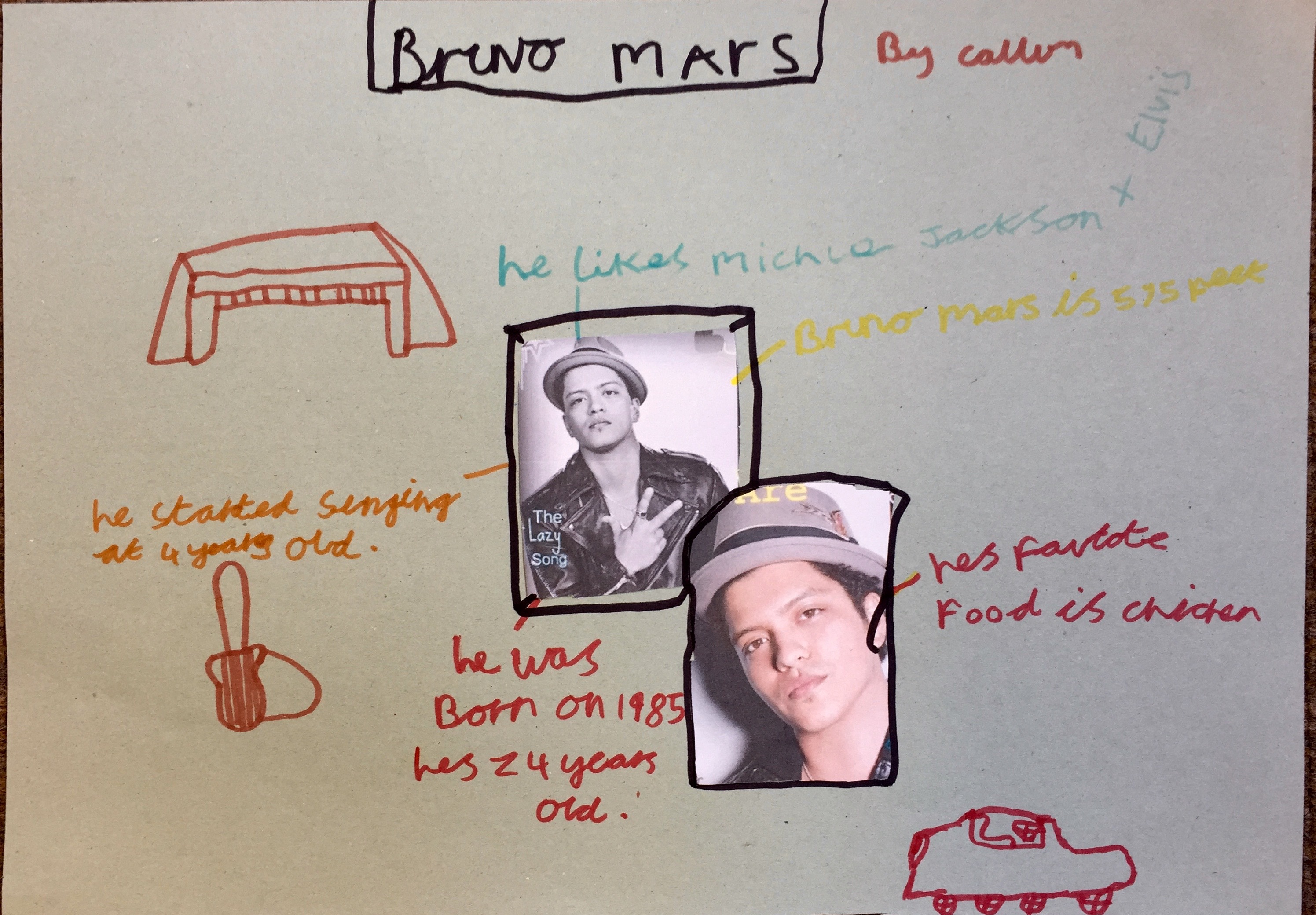Context:
The project worked with a primary school pupil referral unit, with young people excluded from mainstream education, all the young people are male, and all of the centre staff female.
This project was a follow up to the previous project at Cranbury Primary, looking to build on the learning from the first project. During the first project it was agreed that the creative aspects of the sessions were very good but failed to deliver any Arts Awards.
Throughout this project there was a greater focus on evidence gathering, ensuring that that the work the young people were doing didn’t go unrecorded/evidenced.
There was a new delivery team put in place as part of the project. A new music leader, who had more experience of working with accreditation in formal education, was appointed. There was also a new support music leader appointed, this was simply down to availability.
Unlike phase one Cranbury Primary phase two encompassed more than just music, this decision was made partially for pupil engagement but also to help deliver some elements of the Arts Award in different ways.
Approach:
Sessions took place weekly in school time, in small groups of 3 – 4 young people.
Each session focussed on getting the young people to take part in a different arts taster activity, by the end of the project they had done sessions in:
- Music
- Ukulele
- Djembes
- Bongos
- Media production
- Stop motion animation
- Poster/advert design
- Photography
- Lyric writing
The activities were designed to link in with the Arts Award, for example for Part B: Explore the young people have to keep a record of what they found out about artists. For this activity the young people had to research a group they lied, then make up a poster for the act, including facts about them. In doing this the output (the poster) was also the evidence for Part B. This approached was echoed in all weeks of the activity. This process worked nicely as some of these young people can disengage when it comes to paperwork or similar, additionally it meant less work for the music leader.
Final portfolios were complied by the music leader, and burnt to DVD in digital format. This included photos, video and audio.
Readipop provided all equipment for the session to take place.
Sessions planning was done on a weekly basis reflecting on what had happened previously, plans were done by the music leader then shared and agreed with the school head teacher and Readipop core team.
Each session lasted 45-60 minutes.
Issues arising, improvements and advice:
- Planning for a whole term in advance, not only from a school point of view but because some pupils will engage more readily in the sessions with preparation work by classroom teachers prior to the session. Will need to agree flexibility within this.
- Ensure all content is age appropriate, for example if doing hip-hop lyrics or music production.
- Ensure pupils follow college rules even though this is outside of their normal work. There was one issue with lyric writing where a young person wrote lyric’s that the school wouldn’t normally allow but the music leader thought were ok. School guidelines and parameters need to be agreed in advance and shared with music leaders, additionally the school will ‘sign off’ any lyrics written.
- Have a stills/video camera on hand at all times to collect any evidence. Use it to film discussions and practical work.
- Collate portfolios on an on-going basis – don’t leave it all to the end as it becomes unmanageable.
Impact:
All seven young people achieved Arts Award, a first for the school.
“At a recent primary session, I was told that one of the students had experienced a particularly difficult day and would not be joining us. I explained what the plan was and, after a quick chat with the student, he agreed to join the session and engaged fully with the activity, including his Share discussion. I was told this was quite an achievement for him.” Matt Foster – Music Leader
As evidenced above the session had a positive impact on student engagement within school, and trust was built up between the music leader and the pupils.
The pupils particularly enjoyed using the iPads and this proved to be a good way to engage them in their learning.
The school has been very pleased with the work, in terms of positive role models and engaging activity for the young people, the fact that the young people can work towards a qualification is a bonus. The school are keen to do a third project in Autumn 2015
Comments:
“When working on an Arts Award suite of qualifications, it is important to know what evidence you need to collect so that this can be a clear part of your planning and preparation. The advice sheet provided by Rob Gilmour (Readipop) is very useful as it summarises the requirements on to one page. As long as you follow this you can’t go wrong.” Matt Foster – Music Leader
“Pupils really enjoyed using the iPads for photography and film” Sally Ollerenshaw – Head teacher
“A piece of advice I’d give someone before starting to deliver an Arts Award is to have an understanding of who (young people) they will be working with before planning activities.” Sally Ollerenshaw – Head teacher

